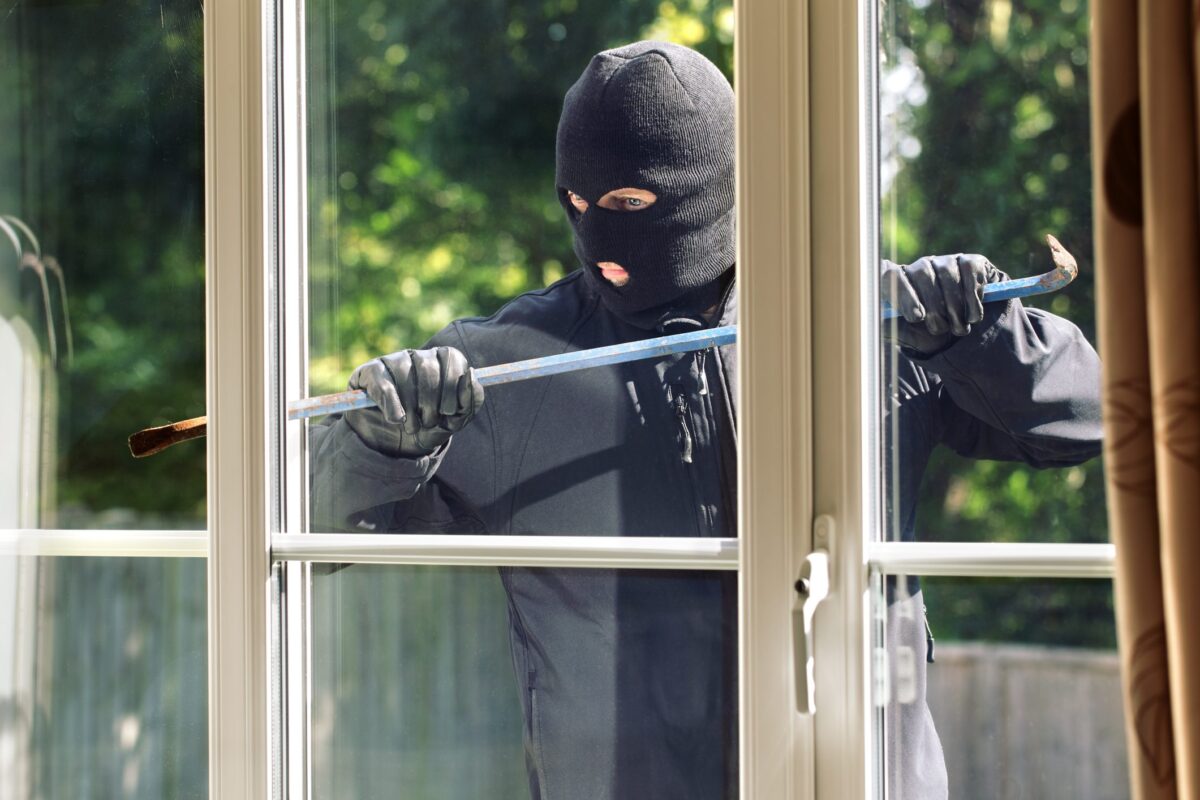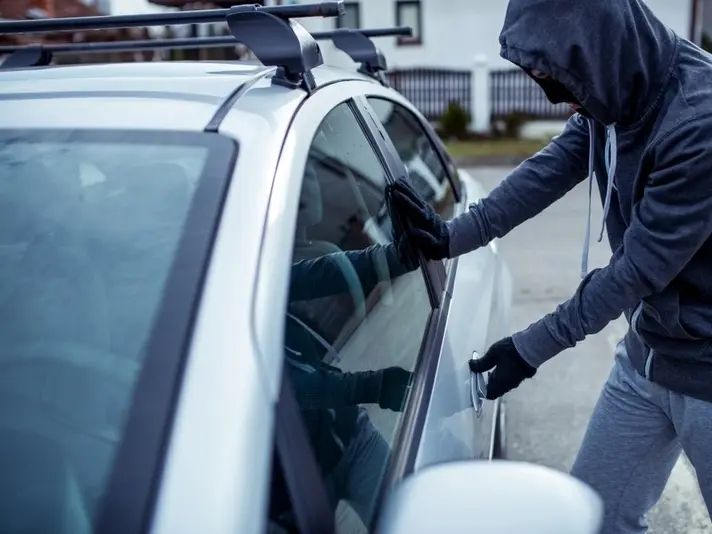
It is really difficult to write an article offering home security advice and make it 100% unique. Why? Because home security advice hasn’t changed a whole lot in 20 years.
Among the hundreds of thousands of articles that you will find online, there isn’t a whole lot of differentiation. It is the same advice over and over again.
There is a quite simple reason for this: the standard advice so many experts rely on actually works. And if it ain’t broke, don’t fix it, right? The thing about home security advice is that most of it pertains to burglary, home invasion, and car break-ins. These types of crimes have remained consistent for decades. There isn’t a whole lot to talk about it because they haven’t evolved all that much.
Table of Contents
Burglars Break into Homes

Burglary is often the big thing when bloggers and home security experts discuss security strategies. It is true that burglary rates fluctuate from year to year. Some years they are up, other years they are down, and some years they remain flat. What does not change is that burglars break into homes. They have been doing it since humanity started occupying dwellings.
The other thing that has not changed is mode of entry. Burglars have always preferred the easiest and most inconspicuous entry point. And in most cases, that’s a first-floor door. Now, take a look around your neighborhood. Is there anything in relation to front and back doors that has changed remarkably over the last 50 years? No.
Take your average front door. It is still secured by a handle lock, deadbolt lock, or both. Growing numbers of homes feature smart locks, but such locks are not remarkably different from a mechanical standpoint. They still rely on a deadbolt mechanism to secure the door.
Burglars Steal the Same Things

Not only do burglars still break into homes, but they also steal the same things. Your typical burglar is not the Hollywood burglar who seeks to clean out a home of expensive artwork, large furniture pieces, TVs, etc. Real burglars go after small items they can stick in their pockets. They go after items they can sell discreetly on the street.
What does this mean in practical terms? It means burglars love jewelry, small electronics, handguns, and cash. And where are those things found in almost every home? The master bedroom. It has been that way for a long time. That is why burglars tend to head straight for the master bedroom upon entering a home.
Criminals Still Don’t Want to Get Caught

Home security providers like Vivint routinely promote monitored security systems as one of the best methods to protect against burglary and home invasion. Yes, they are marketing. But they are still marketing based on the verifiable fact that criminals do not want to get caught. In fact, criminals go out of their way to not get caught.
The desire to avoid being caught is why so many burglars admit to being wary of home security systems. It is why they are more likely to move on to another target if they come upon a house protected by a monitored security system. It is why they avoid homes with wireless video cameras.
Not wanting to get caught also explains why so many home security experts recommend doing things to confuse burglars. They recommend automating lights and moving cars.
They recommend installing video doorbells with two-way audio. Anything that can plant a seed of doubt in a burglar’s mind will force them to wonder whether someone is home or not. And once you plant that seed of doubt, the burglar is more likely to walk away.
Criminals Still Look for Unlocked Cars

Where car burglaries are concerned, law enforcement continually reminds people to keep their car doors locked at all times – even at home. Why? Because criminals still look for unlocked cars. They have been looking for unlocked cars ever since car burglary became a thing. Unlocked cars are easy to get into without drawing attention to oneself.
Granted, a car thief who wants the whole car rather than just something in the glove box might be willing to go to greater lengths to break in. But your typical burglar looking for a quick score is less likely to force a door or break a window. If a car is locked, they will simply move on to the next one.
As a side note, car burglars know to look in the glove box and under the front seat just as home burglars know to head straight to the master bedroom. Therefore, just throwing your valuables into the glove box does not guarantee your car will not be burglarized. The best way to prevent car burglary is to lock your doors. If your car has an alarm, using it helps.
Burglars Look for Easy Targets

Some of the updated home security advice offered by experts revolves around sharing too much information and making it too easy for burglars to victimize you. This advice is as solid today as it was 50 years ago for the simple fact that burglars continue to look for easy targets.
Believe it or not, burglars pay attention to social media. If you are the type of person who likes to tell your friends where you are every minute of the day, you may be broadcasting the same information to a burglar. Ditto if you have a habit of posting vacation photos in real time.
Tell the whole world you are not home and you’re inviting a burglar to pay a visit. Fail to keep your doors and windows locked and you are ignoring one of the easiest and most effective ways to keep burglars out.
Most of what the experts say about burglary and home invasion is pretty basic. Their advice hasn’t changed because property crimes haven’t changed all that much. That’s good news for homeowners, because all the tried-and-true strategies for avoiding property crimes still work. It is really just a matter of putting them into practice.







